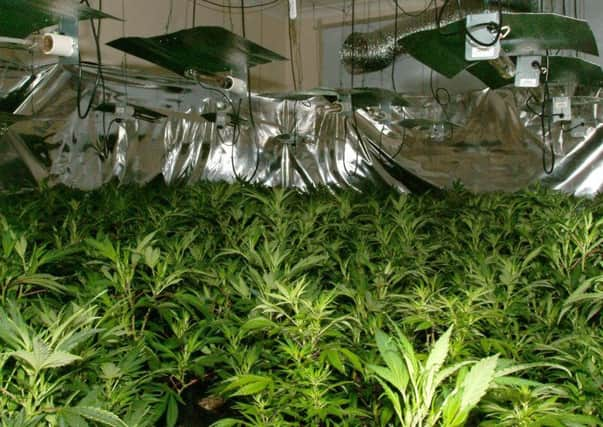The drug that experts fear the most may surprise you – Tom Wood


It all seems to have gone quiet recently, given our present fixation on our constitutional arrangements – Brexit etc – seem all-consuming of our attention.
But the cannabis question won’t go away and, slightly off centre stage, the tectonic plates are quietly shifting.
Advertisement
Hide AdAdvertisement
Hide AdIn the last few weeks, several distinct drug-related storylines have emerged which bear examination.
Some are familiar – Scotland’s disgraceful drug-death statistics, record seizures of heroin and so on – but some are new.
Following the recent legalisation of cannabis for medical purposes, it was recently announced that one of the world’s largest marijuana companies has completed its first commercial export of cannabis oil to Britain.
In the same vein, London is emerging as a European hub for cannabis companies looking to raise funds to expand their businesses.
Advertisement
Hide AdAdvertisement
Hide AdAnd, at the same time, Police Scotland was defending its policy of handing out warnings for possession of small amounts of cannabis as an alternative to prosecution. As a policy, it seems sensible.
A global study of 100,000 young people found no evidence of higher use in countries with liberal drug laws than in countries with tougher drug enforcement.
It all seems to coincide with our view of cannabis as the least harmful of the recreational substances.
Indeed many individuals now prominent in society confide that they have fond memories of an occasional ‘joint’ while at university in the 70s. It didn’t do them any harm, after all.
Advertisement
Hide AdAdvertisement
Hide AdBut before we drift, policy-lite, down the road of accepting cannabis as relatively harmless, let’s look at the new evidence and the new cannabis.
The ‘weed’ of the 70s is very different from the ‘skunk’ of today and evidence is growing of serious mental health problems associated with its use. A recent study found that a third of all psychosis cases in London are the result of smoking ‘skunk’.
The effects of this super-strength cannabis include hallucinations, delusions and schizophrenia. Closer to home, the recent bestial murder of little Alesha MacPhail and the revelation that her murderer, a sociopathic young man with a heavy cannabis habit, should make us pause for thought.
Ten years ago, I had a conversation with a Dutch drugs expert. I asked him to predict our future challenges. Would it be heroin or cocaine, would it be the new ‘designer’ amphetamines that overwhelmed us?
Advertisement
Hide AdAdvertisement
Hide AdHis answer was unequivocal, the heavy use of strong cannabis and alcohol by young people was the greatest threat of all with a long legacy of mental illness and psychotic behaviour. He was probably right.
We need to wake up to cannabis because over the years we have become ambivalent about it. The emerging evidence shows us we were wrong, yet this matter of such high importance seems to be of the lowest priority.
But perhaps I’m wrong, perhaps the policy machine is running silently at top speed, gathering evidence from across the world to build a progressive strategy that will protect our future generations. If it’s not, it should be.
Tom Wood is a writer and former Deputy Chief Constable
